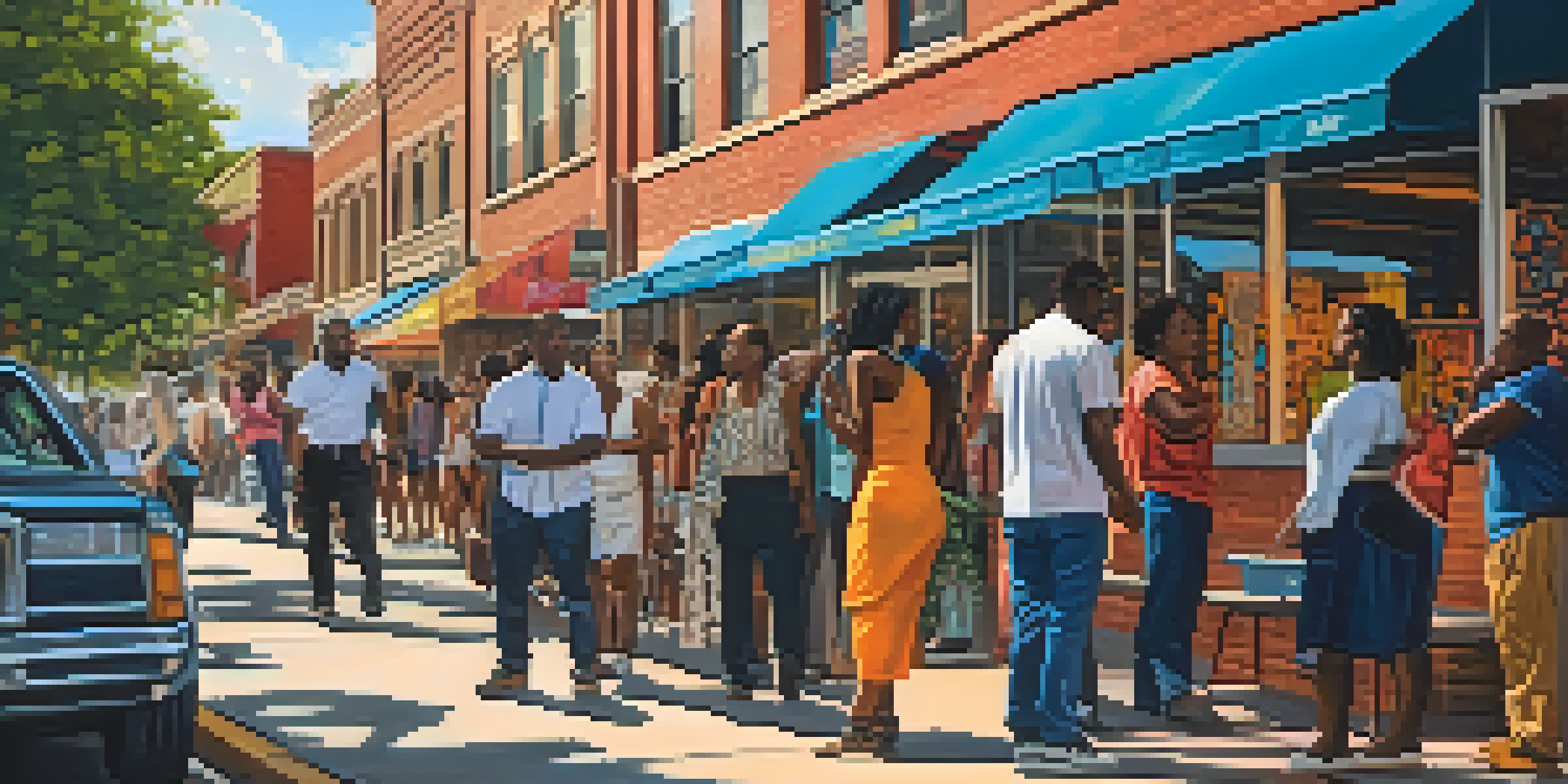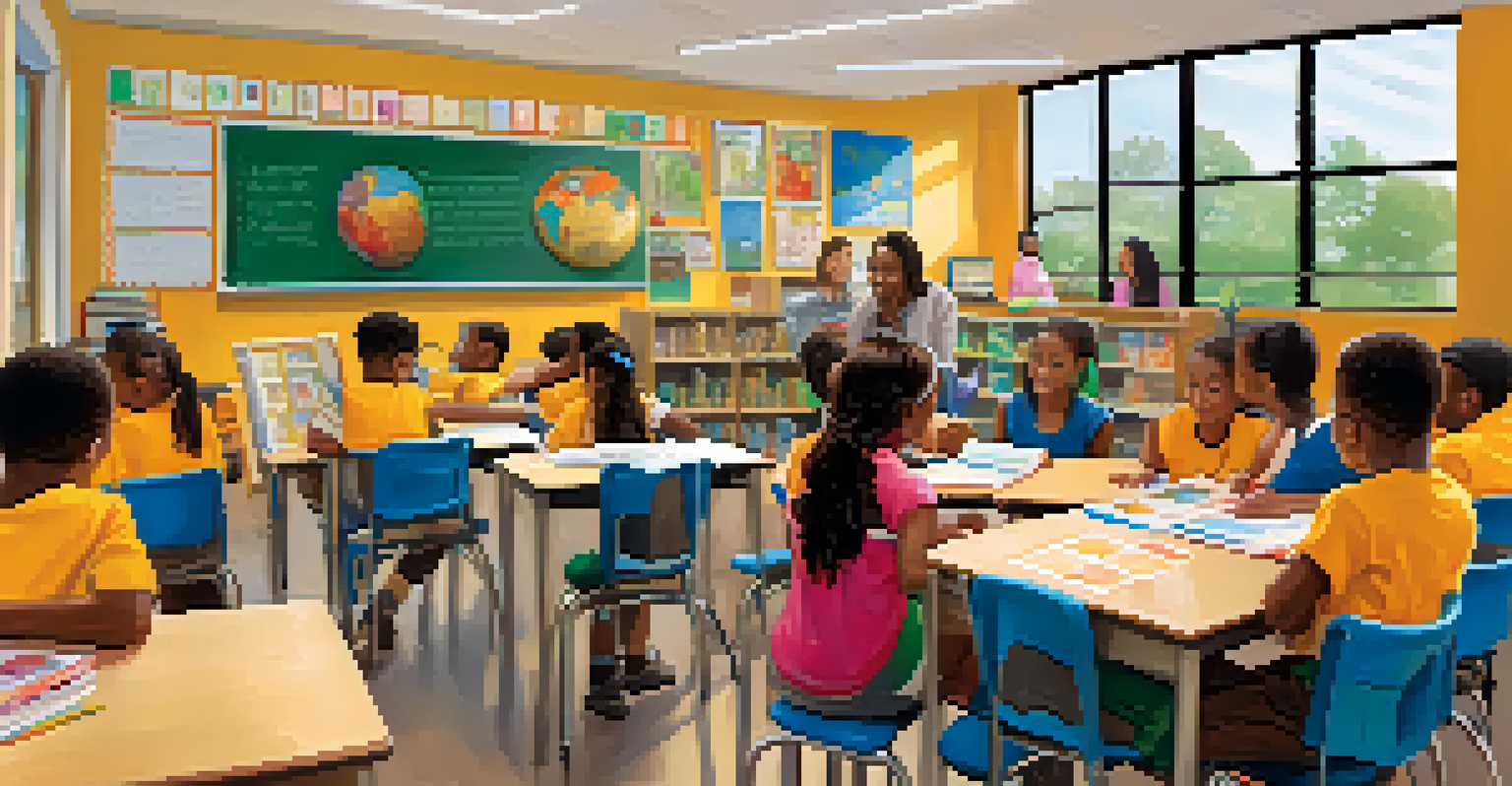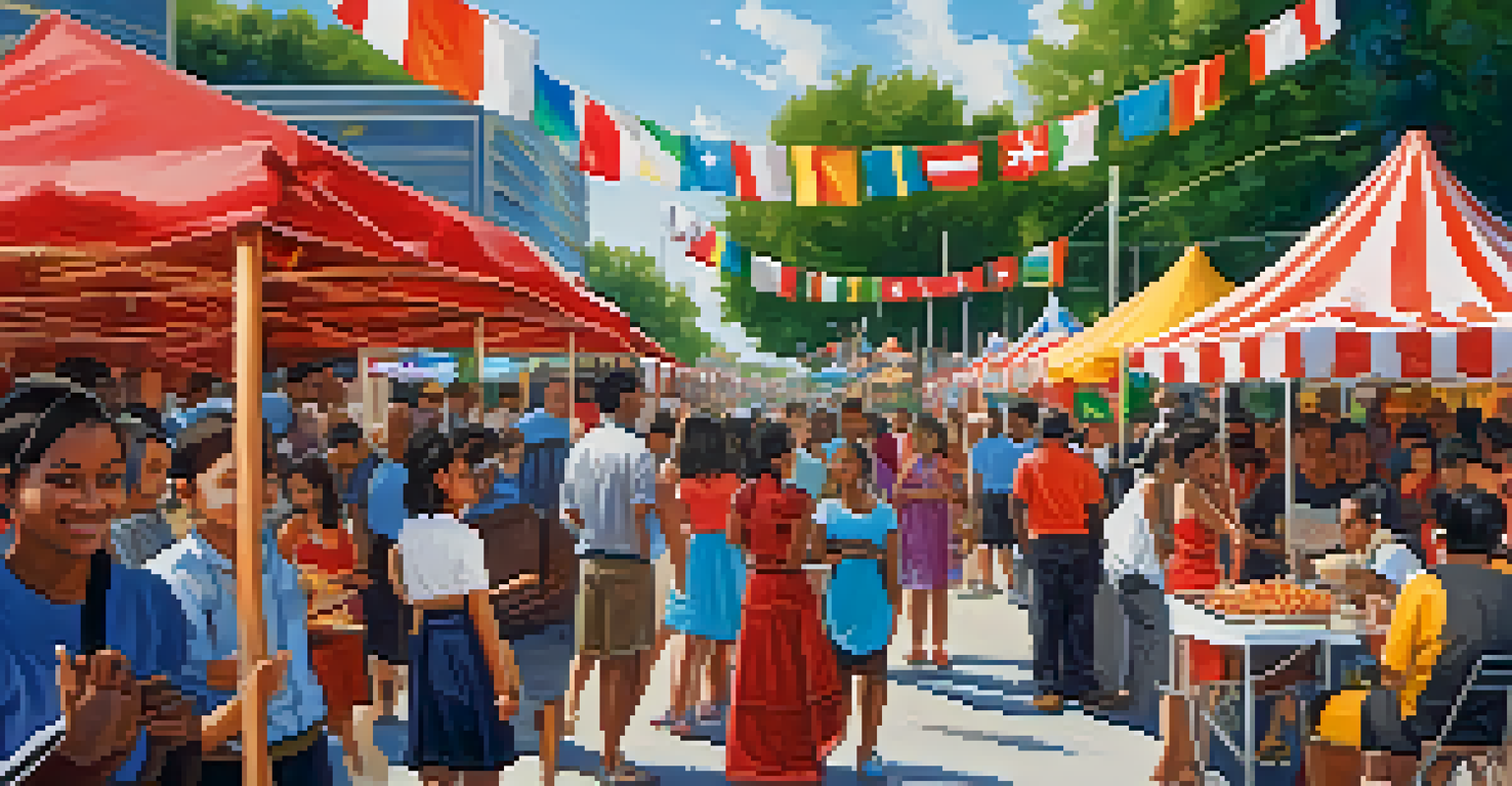The Role of Language in Atlanta's Cultural Diversity

Atlanta: A Melting Pot of Languages and Cultures
Atlanta is a city where languages intertwine, creating a vibrant tapestry of cultures. From the bustling streets of downtown to the neighborhoods of East Atlanta, you can hear a symphony of languages, reflecting the city’s rich diversity. This blend of dialects not only enriches the local culture but also reflects the city's history of migration and adaptation.
Language is the road map of a culture. It tells you where its people come from and where they are going.
As people from various backgrounds come to Atlanta for opportunities, they bring their languages with them. The result is a fascinating mix where Spanish, Korean, Arabic, and many other languages coexist. This linguistic diversity fosters a sense of community among different cultural groups, making Atlanta a truly inclusive city.
Moreover, language plays a crucial role in shaping identities and experiences. For newcomers, speaking their native language can provide comfort and belonging, while also contributing to the city's multicultural identity. In this way, Atlanta's language landscape tells a story of resilience, connection, and shared experiences.
The Influence of Language on Local Communities
In Atlanta, language serves as a bridge connecting various communities. Local organizations and cultural centers often provide language classes and resources, helping immigrants maintain their heritage while integrating into the broader society. These initiatives not only promote linguistic preservation but also foster understanding among diverse cultural groups.

For example, the Latin American Association offers programs that support Spanish speakers in navigating life in Atlanta, from education to healthcare. Such efforts highlight the importance of language in empowering communities and facilitating access to essential services. By nurturing these connections, Atlanta enhances its cultural fabric.
Atlanta's Rich Linguistic Diversity
Atlanta is a vibrant city where various languages coexist, reflecting its multicultural identity and history of migration.
Additionally, neighborhood events often celebrate multilingualism, where residents showcase their languages through art, music, and cuisine. These gatherings allow for cultural exchange, creating an atmosphere of mutual respect and appreciation. In this way, language becomes a vital tool for building lasting relationships within the community.
Language in Education: A Pathway to Inclusion
Language plays a pivotal role in Atlanta's educational landscape, influencing how students connect and learn. Schools are increasingly recognizing the need for multilingual education to cater to their diverse student population. Bilingual programs not only support language development but also enhance cognitive skills and cultural awareness.
We all have a story to tell, and language is the vehicle for that story.
For instance, many Atlanta public schools offer dual-language immersion programs, allowing students to learn in both English and another language. This approach not only helps English language learners but also enriches the educational experience for all students. By fostering an environment of inclusion, schools are preparing students for a globally connected world.
Furthermore, parental involvement is crucial in supporting language development at home. Schools encourage families to maintain their native languages, which strengthens cultural ties and promotes bilingualism. This commitment to language diversity ultimately contributes to a more inclusive society.
The Role of Media in Language Representation
In today’s digital age, media plays a significant role in representing Atlanta's linguistic diversity. Local news outlets, radio stations, and social media platforms often feature content in multiple languages, reflecting the city's multicultural identity. This representation helps validate the experiences of various communities and promotes inclusivity.
For example, radio stations like Radio Korea and Latinx stations cater to specific language-speaking audiences, providing news and entertainment in their languages. This accessibility allows communities to stay informed and connected, highlighting the importance of language in everyday life. Media serves as a powerful medium for cultural expression.
Language Fuels Community Connections
Language serves as a vital bridge in Atlanta, fostering community ties through cultural events and educational programs.
Additionally, the rise of social media has given voice to individuals from diverse backgrounds. Platforms like Instagram and TikTok enable users to share their stories and cultural experiences in various languages, fostering connections beyond geographical boundaries. This digital landscape showcases Atlanta's rich linguistic tapestry and encourages dialogue among its residents.
Language and the Arts: A Creative Expression
The arts in Atlanta are deeply intertwined with language, showcasing the city’s cultural richness. From spoken word poetry to multilingual theater productions, artists use language as a medium to express their identities and experiences. These artistic expressions not only entertain but also educate audiences about cultural nuances and diverse perspectives.
Local events like the Atlanta International Poetry Festival highlight the importance of language in the arts. Poets from various backgrounds share their work in multiple languages, creating a platform for cultural exchange. Such events foster appreciation for different linguistic traditions while building a sense of community among artists.
Moreover, visual arts often incorporate linguistic elements, with murals and installations featuring phrases in different languages. These artworks celebrate cultural heritage and promote dialogue about identity and belonging. In this way, language in the arts becomes a powerful tool for storytelling and connection.
Challenges of Language Diversity in Atlanta
While Atlanta's linguistic diversity is a strength, it also presents challenges. Communication barriers can lead to misunderstandings and feelings of isolation among non-English speakers. This issue often affects access to vital resources such as healthcare, education, and legal services, highlighting the need for more comprehensive language support.
Many organizations in Atlanta are working to address these challenges by offering translation services and bilingual resources. However, the demand often exceeds the available support, putting pressure on both service providers and community members. Bridging this gap requires collaboration and commitment from various stakeholders.
Challenges in Language Accessibility
Despite its linguistic diversity, Atlanta faces challenges like communication barriers that can hinder access to essential services for non-English speakers.
Additionally, the stigma associated with limited English proficiency can hinder integration efforts. Many immigrants may feel reluctant to seek help or participate in community activities due to language barriers. By fostering a more inclusive environment that values all languages, Atlanta can create opportunities for everyone to thrive.
The Future of Language and Culture in Atlanta
Looking ahead, the future of language and culture in Atlanta appears promising. As the city continues to grow and attract diverse populations, the importance of language will only increase. Embracing multilingualism can lead to greater innovation and creativity, enriching the cultural landscape even further.
Community organizations, schools, and local governments must continue to prioritize language access and education. By investing in multilingual initiatives, Atlanta can ensure that all residents feel valued and included. This commitment to linguistic diversity will strengthen community bonds and contribute to social cohesion.

Ultimately, language is more than just a means of communication; it is a key to understanding and celebrating the diverse tapestry of Atlanta. As the city evolves, fostering a culture that embraces all languages will pave the way for a brighter, more inclusive future for everyone.